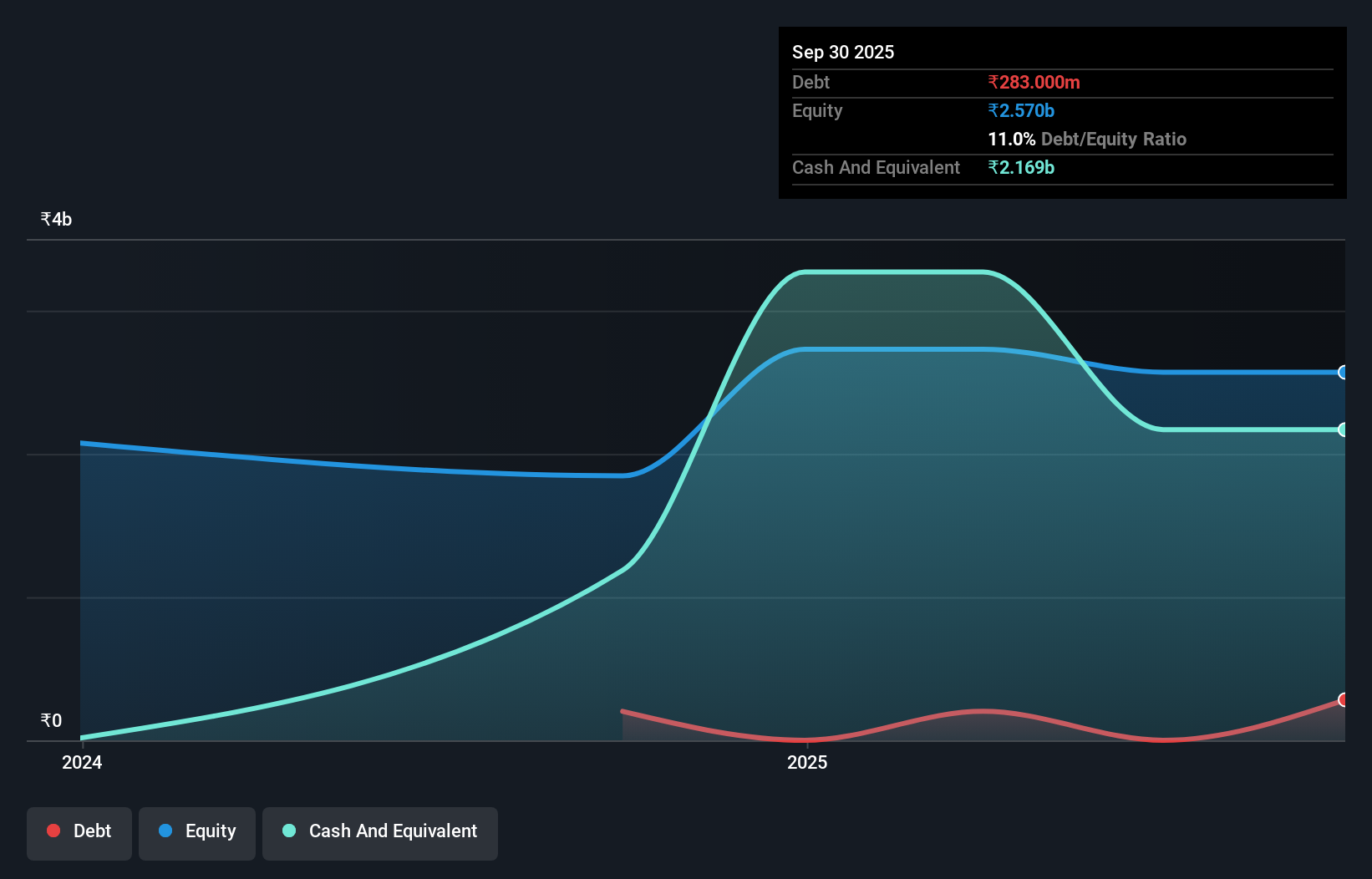These 4 Measures Indicate That Sanofi Consumer Healthcare India (NSE:SANOFICONR) Is Using Debt Safely
Howard Marks put it nicely when he said that, rather than worrying about share price volatility, 'The possibility of permanent loss is the risk I worry about... and every practical investor I know worries about.' So it seems the smart money knows that debt - which is usually involved in bankruptcies - is a very important factor, when you assess how risky a company is. As with many other companies Sanofi Consumer Healthcare India Limited (NSE:SANOFICONR) makes use of debt. But the real question is whether this debt is making the company risky.
When Is Debt A Problem?
Generally speaking, debt only becomes a real problem when a company can't easily pay it off, either by raising capital or with its own cash flow. Ultimately, if the company can't fulfill its legal obligations to repay debt, shareholders could walk away with nothing. While that is not too common, we often do see indebted companies permanently diluting shareholders because lenders force them to raise capital at a distressed price. Of course, debt can be an important tool in businesses, particularly capital heavy businesses. When we think about a company's use of debt, we first look at cash and debt together.
How Much Debt Does Sanofi Consumer Healthcare India Carry?
You can click the graphic below for the historical numbers, but it shows that as of June 2025 Sanofi Consumer Healthcare India had ₹283.0m of debt, an increase on ₹202.0m, over one year. However, its balance sheet shows it holds ₹2.17b in cash, so it actually has ₹1.89b net cash.

How Strong Is Sanofi Consumer Healthcare India's Balance Sheet?
We can see from the most recent balance sheet that Sanofi Consumer Healthcare India had liabilities of ₹1.33b falling due within a year, and liabilities of ₹321.0m due beyond that. On the other hand, it had cash of ₹2.17b and ₹456.0m worth of receivables due within a year. So it can boast ₹975.0m more liquid assets than total liabilities.
This state of affairs indicates that Sanofi Consumer Healthcare India's balance sheet looks quite solid, as its total liabilities are just about equal to its liquid assets. So while it's hard to imagine that the ₹109.3b company is struggling for cash, we still think it's worth monitoring its balance sheet. Simply put, the fact that Sanofi Consumer Healthcare India has more cash than debt is arguably a good indication that it can manage its debt safely.
View our latest analysis for Sanofi Consumer Healthcare India
Even more impressive was the fact that Sanofi Consumer Healthcare India grew its EBIT by 256% over twelve months. That boost will make it even easier to pay down debt going forward. There's no doubt that we learn most about debt from the balance sheet. But ultimately the future profitability of the business will decide if Sanofi Consumer Healthcare India can strengthen its balance sheet over time. So if you want to see what the professionals think, you might find this free report on analyst profit forecasts to be interesting.
Finally, a company can only pay off debt with cold hard cash, not accounting profits. Sanofi Consumer Healthcare India may have net cash on the balance sheet, but it is still interesting to look at how well the business converts its earnings before interest and tax (EBIT) to free cash flow, because that will influence both its need for, and its capacity to manage debt. Over the last two years, Sanofi Consumer Healthcare India actually produced more free cash flow than EBIT. There's nothing better than incoming cash when it comes to staying in your lenders' good graces.
Summing Up
While we empathize with investors who find debt concerning, you should keep in mind that Sanofi Consumer Healthcare India has net cash of ₹1.89b, as well as more liquid assets than liabilities. The cherry on top was that in converted 152% of that EBIT to free cash flow, bringing in ₹2.1b. So we don't think Sanofi Consumer Healthcare India's use of debt is risky. There's no doubt that we learn most about debt from the balance sheet. But ultimately, every company can contain risks that exist outside of the balance sheet. Case in point: We've spotted 1 warning sign for Sanofi Consumer Healthcare India you should be aware of.
Of course, if you're the type of investor who prefers buying stocks without the burden of debt, then don't hesitate to discover our exclusive list of net cash growth stocks, today.
New: Manage All Your Stock Portfolios in One Place
We've created the ultimate portfolio companion for stock investors, and it's free.
• Connect an unlimited number of Portfolios and see your total in one currency
• Be alerted to new Warning Signs or Risks via email or mobile
• Track the Fair Value of your stocks
Have feedback on this article? Concerned about the content? Get in touch with us directly. Alternatively, email editorial-team (at) simplywallst.com.
This article by Simply Wall St is general in nature. We provide commentary based on historical data and analyst forecasts only using an unbiased methodology and our articles are not intended to be financial advice. It does not constitute a recommendation to buy or sell any stock, and does not take account of your objectives, or your financial situation. We aim to bring you long-term focused analysis driven by fundamental data. Note that our analysis may not factor in the latest price-sensitive company announcements or qualitative material. Simply Wall St has no position in any stocks mentioned.
About NSEI:SANOFICONR
Sanofi Consumer Healthcare India
Operates as a fast-moving consumer healthcare company in India.
Excellent balance sheet with proven track record.
Market Insights
Community Narratives



